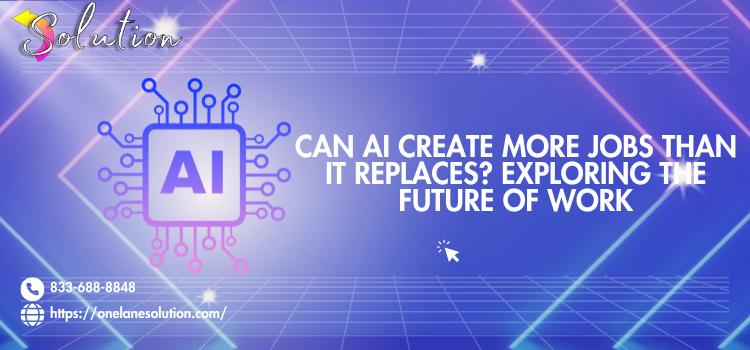Introduction
The rapid advancement of conduct a successful market research survey has sparked debates about its impact on employment. While some fear job losses due to automation, the reality is quite different. AI is creating more jobs than it replaces, leading to new career opportunities, business growth, and economic expansion.
AI as a Catalyst for Job Creation
Emerging AI-Driven Industries
AI is fueling the creation of entirely new industries, such as machine learning, robotics, data science, and AI ethics. These fields demand specialized expertise, leading to a surge in job opportunities for professionals across various disciplines.
Expansion of Existing Sectors
Industries such as healthcare, finance, education, and manufacturing are integrating AI to enhance efficiency and innovation. This integration necessitates a workforce skilled in AI implementation, maintenance, and supervision, leading to high demand for AI professionals.
Startups and Entrepreneurial Opportunities
AI is providing entrepreneurs and startups with powerful tools to innovate. The ease of accessing AI-driven solutions is encouraging business creation, thereby generating employment opportunities in tech and non-tech sectors alike.
AI’s Impact on Workforce Transformation
Upskilling and Reskilling the Workforce
AI is reshaping the workforce, demanding continuous learning and skill development. Organizations are investing in reskilling and upskilling programs to equip employees with AI-related competencies, ensuring job security and career advancement.
New Job Roles in AI Integration
As AI integrates into business operations, new job roles emerge, such as:
- AI Specialists: Developing and refining AI models.
- Data Analysts: Interpreting vast amounts of AI-generated data.
- Ethical AI Officers: Ensuring responsible AI implementation.
- AI Trainers: Teaching AI models using human supervision.
Enhancing Workforce Productivity
AI automates repetitive tasks, allowing employees to focus on higher-value activities. This shift enhances job satisfaction, promotes creativity, and increases overall productivity.
Addressing Concerns About AI and Job Displacement
The Myth of Mass Unemployment
Historical technological advancements, such as the Industrial Revolution, initially sparked fears of job losses but ultimately led to increased employment and economic growth. AI follows the same trajectory, replacing mundane tasks while creating new opportunities.
Human-AI Collaboration
Instead of replacing jobs, AI is augmenting human capabilities. AI tools assist professionals in making informed decisions, streamlining processes, and improving efficiency, thereby enhancing job roles rather than eliminating them.
Policy and Corporate Initiatives
Governments and corporations are actively investing in AI-driven workforce policies, ensuring a smooth transition into the AI era. Initiatives such as AI education programs, training workshops, and job placement services aim to mitigate the potential risks associated with automation.
Future Outlook: A Thriving AI-Powered Job Market
The future of work is dynamic and promising with AI playing a pivotal role. As AI technology advances, new career paths will emerge, offering diverse employment opportunities. Industries will continue to evolve, fostering a workforce that thrives on innovation, adaptability, and lifelong learning.
Also Read: roadmap to build a long lasting brand image
Conclusion
The rise of AI is not a threat to employment but an opportunity for job creation, economic growth, and workforce transformation. By embracing AI-driven advancements, individuals and organizations can navigate the evolving job landscape with confidence and resilience.








